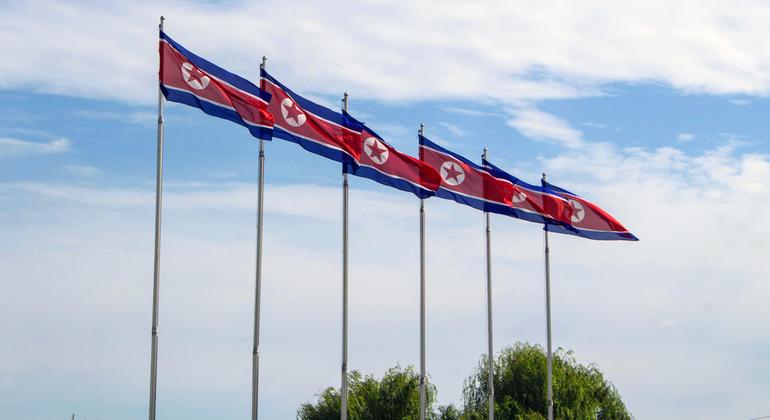UN officials called on North Korea to stop missile activity and return to dialogue


At 10:45 p.m. local time on May 27, the DPRK, also known as North Korea, conducted what it described as “the launch of the Malligyong-1-1 reconnaissance satellite on a rocket carrying a new type of satellite” from the Sohae Station Satellite Launch.
According to the Democratic People’s Republic of Korea, the launch failed “due to the explosion of a rocket carrying a new type of satellite during the first stage flight”. Khaled Khiari, Assistant Secretary General of the Department of Politburo and Peacebuilding (DPPA), told ambassadors at the conference that the failure was due to the “reliability” of the newly developed liquid gasoline-oxygen engine . Security Council.
Developing military reconnaissance satellites is part of North Korea’s five-year military development plan, announced in January 2021.
Since 2022, the country has significantly increased its missile launch activities, including more than 100 launches using ballistic missile technology, violating relevant Security Council resolutions. This year alone, North Korea launched two medium-range ballistic missiles using solid fuel in January and April.
Violation of Security Council prohibitions
Before the latest launch, North Korea notified the Japanese Coast Guard but did not notify the specialized agencies of the United Nations – the International Civil Aviation Organization (ICAO) or the International Telecommunication Union (ITU).
“North Korea’s unannounced launches pose serious risks to civil aviation and international maritime traffic,” he warned.
He also emphasized the need to comply with its international obligations.
“Sovereign nations have the right to benefit from peaceful space activities,” he said.
“However, Security Council resolutions prohibit North Korea from conducting any launches using ballistic missile technology.”
On May 28, Secretary General of the United Nations strongly condemn the attempted launchreiterated its call for North Korea to return to dialogue to achieve sustainable peace and complete denuclearization of the Korean Peninsula.
Create space for dialogue
Mr. Khiari emphasized the urgent need to take practical measures to reduce tensions and create space for diplomatic paths.
“The Secretary-General has emphasized the importance of re-establishing communication channels, especially between military entities. “Utmost restraint is important to avoid unintended escalation,” he said.
He also called on all member states and members of the Security Council to seek unity and for all parties to create an environment conducive to dialogue and cooperation.
“At this exceptionally difficult time in ensuring global peace and security, it is imperative to de-escalate rising tensions on the Korean Peninsula,” he said.
The UN is ready to assist
In addition to addressing security concerns, Mr. Khiari noted that the United Nations and partners are ready to assist the DPRK in addressing the basic needs of its vulnerable people.
With international travel to and from the DPRK increasing, he encouraged the authorities to facilitate the full return of the international community, including the United Nations Resident Coordinator and the International Team. United Nations.
“The collective return will strengthen international support for the people of the DPRK and the implementation of the agreement Agenda 2030,” he concluded.




